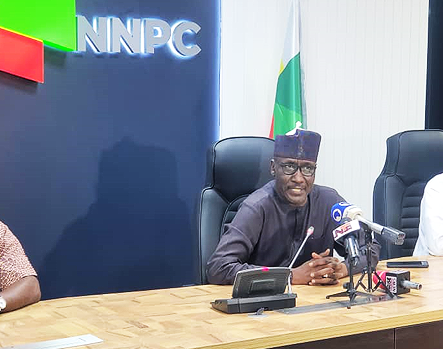The Federal Government’s outstanding debt to the Nigerian National Petroleum Company Limited (NNPCL) for fuel subsidy exchange rate differentials has risen to N7.74 trillion as of September 2024. This amount covers the cost of keeping petrol prices stable despite fluctuating import costs between June 2023 and September 2024, when the downstream oil sector was fully deregulated.
A presentation by the NNPCL to the Federation Account Allocation Committee (FAAC) at its February meeting in Abuja disclosed the details of this debt. The FAAC document, obtained by our correspondent, reveals that the government is working on measures to settle the debt within 210 days.


Breakdown of the Debt Accumulation
In August 2024, The PUNCH exclusively reported that the NNPCL requested a refund of N4.71 trillion from the government to cover outstanding fuel import debts. The claim was listed as “Exchange rate differential on PMS and other joint venture taxes” for products imported between August 2023 and June 2024.
Exchange rate differentials arise when the value of currency changes over time. The government had subsidized fuel imports by covering the gap between the projected exchange rate and actual import costs, which NNPCL now seeks to recover.
A breakdown of the FAAC document shows that the total exchange rate differential due was N10.499 trillion. However, N2.756 trillion was recovered between November 2023 and September 2024, reducing the outstanding balance to N7.74 trillion. The settlement process is ongoing, based on prevailing forex rates.


Rising Debt Over Time
Month-by-month, the subsidy debt grew significantly:
- June 2023: N1.29tn → October 2023: N1.81tn
- November 2023: N2.378tn → December 2023: N2.94tn
- January 2024: N3.57tn → June 2024: N6.97tn
- September 2024: N7.74tn
This amount represents 14.07% of Nigeria’s N54.99 trillion 2025 national budget.
Expert Opinions and Concerns
President Bola Tinubu declared the removal of fuel subsidies on May 29, 2023, yet reports suggest the government quietly reintroduced them. In June, a proposed economic stabilization plan indicated a N5.4 trillion fuel subsidy expenditure.
Energy expert Wumi Iledare questioned why NNPCL seeks reimbursement from the government despite selling oil in foreign currency on behalf of the government. He argued that NNPCL should remit taxes and royalties like other oil companies rather than claim exchange rate losses.

FAAC members have also raised concerns over inconsistent revenue reporting by NNPCL. The Ogun State Accountant-General, Tunde Aregbesola, noted discrepancies in revenue inflows compared to November 2024 figures. He highlighted that NNPCL’s receivables stood at approximately N10.8 trillion, with concerns about accuracy.
FAAC Chairperson Oluwatoyin Madein acknowledged these concerns, stating that reconciliation between NNPCL and the Nigerian Upstream Petroleum Regulatory Commission (NUPRC) is ongoing. A timeline for concluding the process is yet to be established.
As the government works toward settling the N7.7 trillion subsidy debt, transparency in financial reporting and accountability remains a crucial issue.




